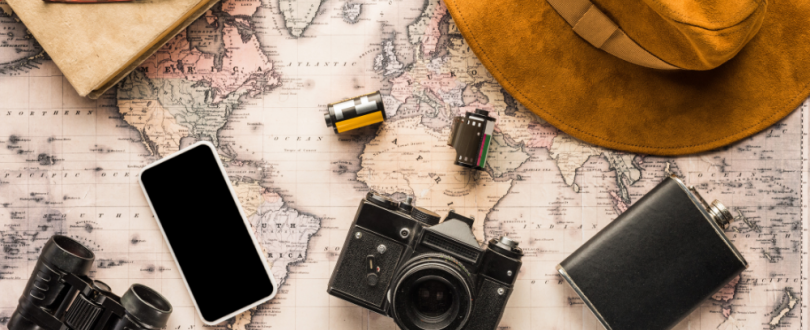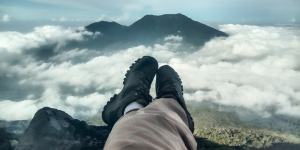
Adventure Travel: Preparing for Your Outdoor Excursions.
Adventure travel is a multifaceted experience, blending excitement with self-discovery. It ranges from physically demanding activities like backpacking and trekking to more culturally immersive experiences like eco-tourism. Understanding the scope of adventure travel is crucial. It’s not just about adrenaline; it’s also about connecting with nature and different cultures.
Essential Gear and Equipment
Choosing the Right Backpack: Your backpack is your lifeline. Consider its size (usually measured in liters), fit, and comfort. Look for features like adjustable straps, adequate padding, and compartments for organization.
Sleeping Systems for Different Climates: Select a sleeping bag and pad suitable for the climate. For cold weather, a sleeping bag with a lower temperature rating and an insulated pad is essential. In warmer climates, opt for a lighter bag and a breathable pad.
Tents and Shelters: Your shelter is crucial. Choose a tent based on the environment and season. Three-season tents are versatile for most conditions, while four-season tents are necessary for harsh winter environments.
Appropriate Clothing: Layering is key. Start with a moisture-wicking base layer, add an insulating layer like fleece, and top with a waterproof, breathable outer layer. Don’t forget a good pair of hiking boots and moisture-wicking socks.
Safety and Survival Gear: Always carry a first aid kit, a multi-tool, and emergency items like a whistle, fire starter, and emergency blanket. Consider a portable water filter and a durable, waterproof map case.
Physical and Mental Preparation
Fitness Training: Tailor your fitness routine to your planned activity. Include cardiovascular exercises, strength training, and endurance activities. Start training months in advance to build up your stamina and strength.
Mental Toughness: Prepare for the unexpected. Practice stress management techniques and develop a positive, adaptable mindset. Being mentally flexible can be as important as physical strength.
Acclimatization: If you’re heading to high altitudes, understand the importance of acclimatizing. Research and plan for a gradual ascent to avoid altitude sickness.
Wilderness Survival Skills
Survival skills can empower and give confidence. Learn the basics of creating shelters, identifying safe water sources, and starting fires without conventional means. Understanding local wildlife behavior is crucial for safe encounters. If foraging is on your agenda, study local flora and fauna with a focus on sustainability and safety.
Outdoor Navigation Techniques
Map Reading: Master the basics of reading topographic maps. Understand symbols, scales, and how to interpret terrain features.
Compass Use: Learn how to use a compass in conjunction with a map. Practice taking your bearings and triangulating your position.
GPS and Technology: While technology can be helpful, don’t rely solely on it. Understand how to use GPS devices, but always carry a physical map and compass as backups.
Natural Navigation: As a complement to maps and compasses, learn natural navigation techniques. This includes using the sun, stars, moon, and natural landmarks to find your way.
Each of these sections provides vital information for anyone planning an adventure travel experience, ensuring they are well-prepared for various challenges and environments.
Specialized Adventure Activities
Rock Climbing and Mountaineering: Safety is paramount. Familiarize yourself with climbing techniques, and gear like harnesses, ropes, and carabiners, and learn about the specific challenges of your climbing destination. Always climb within your skill level and consider professional guides for challenging routes.
White-Water Rafting and Kayaking: Understanding river classifications and safety protocols is key. Start with routes that match your skill level and always wear a life jacket. Learn about navigating rapids, capsizing protocols, and emergency signaling.
Scuba Diving and Snorkeling: Certification is crucial for scuba diving. Understand the equipment, diving physics, and safety practices like buddy checks and decompression rules. For snorkeling, familiarize yourself with the gear and local marine life to ensure a safe and enjoyable experience.

Eco-Friendly Travel Practices
Adopting eco-friendly practices is vital. This means following Leave No Trace principles, choosing environmentally friendly gear, and engaging with local cultures respectfully. Your travels should support and not harm local ecosystems.
Health Considerations and First Aid
Prioritize your health. This includes getting necessary vaccinations, having a medical check-up before departure, and packing a personalized first aid kit. Understand the signs of common travel-related health issues like dehydration, sunstroke, and altitude sickness.
Adventure Travel Insurance
Understanding Policy Coverage: Choose a policy that specifically covers adventure travel activities. Look for features like emergency medical coverage, evacuation, and coverage for gear and personal belongings.
High-Risk Activity Coverage: If engaging in high-risk activities like mountaineering or paragliding, ensure these are covered. Some standard policies exclude such activities, so additional coverage may be required.
Emergency Assistance Services: Opt for a policy that offers 24/7 emergency assistance. This can be invaluable in navigating unforeseen situations in unfamiliar environments.
Planning and Itinerary Tips
Thorough research and planning are key. Understand the best times to visit your destination, the climate, and terrain specifics. Create a flexible itinerary that accounts for weather changes and local conditions. Emergency planning should include knowledge of local emergency services and evacuation routes.
Ethical and Responsible Adventure Travel
Responsible travel involves more than just respecting the environment; it includes cultural sensitivity and supporting local communities. Consider participating in community-based tourism initiatives and volunteering opportunities that positively impact local areas.

Final Checklist Before Departure
Gear and Equipment: Ensure you have all the necessary gear, including clothing, navigation tools, and safety equipment. Double-check the functionality and condition of each item.
Travel Documentation: Make sure your passport, visas, travel insurance documents, and any necessary permits are in order. Keep digital copies in secure online storage as a backup.
Health and Safety: Confirm you have all required vaccinations, medications, and a personalized first aid kit. Review your health and safety plans, including knowledge of basic first aid and emergency procedures.
Staying Connected and Safe
In remote areas, consider satellite phones or emergency beacons for communication. Be responsible with your use of technology, ensuring it does not detract from your experience or the environment.
Communication Plan: Establish a communication plan with your family or friends. Include details about your itinerary, the places you’ll be visiting, and how often you’ll check-in.
Emergency Contacts: Keep a list of emergency contacts, including local authorities, embassies, and tour operators. Know the location of the nearest medical facilities to your destination.
Technology for Safety: Consider carrying a satellite phone, GPS tracker, or a personal locator beacon (PLB) for emergencies, especially if you’ll be in remote areas with limited cell service.
Learning and Growth Opportunities
Embrace the learning opportunities that come with adventure travel. Document your experiences, reflect on your growth, and consider the skills you’ve gained.
Resource Section
For more detailed information, consult specialized adventure travel books and websites. Utilize planning apps and don’t hesitate to contact experienced adventure travel guides for advice.

